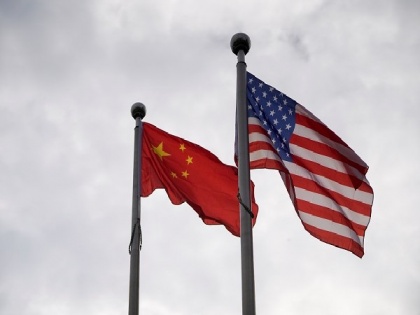Will China surpass US to become the biggest economy in the world?
By ANI | Published: February 24, 2023 12:07 AM2023-02-24T00:07:13+5:302023-02-24T05:40:07+5:30
With the US restricting exports of critical semiconductor components and technology to China, Beijing's bid to topple Washington as ...

Will China surpass US to become the biggest economy in the world?
With the US restricting exports of critical semiconductor components and technology to China, Beijing's bid to topple Washington as the No 1 economy faces 'unprecedented' pressure. Core technologies are China's Achilles' heel, despite having the world's strongest industrial manufacturing capability, and they are easy prey for Washington in its strategy of tech containment, reported The Star.
Semiconductor chips are often compared to the beating heart driving technology innovation. Without mastery of the fiendishly complex chips that power everything from cars to smartphones, President Xi Jinping's hopes of transforming China into the pre-eminent global digital power, while surpassing the US to become the No 1 economy in the world, could fall apart.
"Chips are the foundation of the modern economy," said Jun Zhang, an associate professor of economic geography at the University of Toronto. "There's a rough estimate that a yuan worth of chips can support 10 yuan worth of electrical capacity and generate 100 yuan's economic output."
Zhang said that China faces "unprecedented" pressure from the US, and its international competitiveness depends to some extent on how far American containment will go.
The US tech ban is one reason many international organisations have begun to delay - if not drop entirely - forecasts that China will surpass the US to become the biggest economy in the world. The gap between the two economies widened last year, reported The Star.
"These sanctions will hobble China's semiconductor advances," said Dan Wang, an analyst with Gavekal Dragonomics.
Biden signed into law the bipartisan Chips and Science Act of 2022 last August to bolster American semiconductor development through federal subsidies worth USD 52.7 billion. His administration then significantly expanded its list of technological controls on China in October, with a focus on advanced semiconductor chips, chip-making software and tech talent, reported The Star.
The containment efforts were accelerated last month when the US joined hands with the Netherlands and Japan to limit the supply of cutting-edge chipmaking equipment to China.
Further complicating the situation, the European Union (EU) is expected to pass the EU Chips Act later this year. The legislation hopes to double Europe's share of global chip manufacturing capacity to roughly 20 per cent.
The Star reports that the race for semiconductor supremacy, driven more by political motivations than economic considerations, threatens to not only divert industrial development but reshape the dynamics of economic growth in the US, China and EU.
Beijing has made no official estimate for potential economic losses, but it has criticised Washington for misusing its market dominance.
( With inputs from ANI )
Disclaimer: This post has been auto-published from an agency feed without any modifications to the text and has not been reviewed by an editor
Open in app